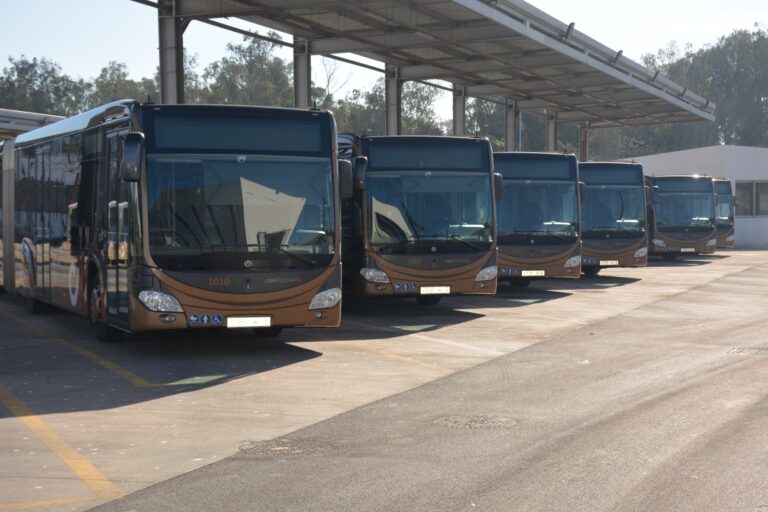Mohammedia – This week, Casablanca hosted the closing of LOGITERRE 2025, a three-day international forum and exposition for the leading minds in transportation and logistics on the continent. The event was about mobility, logistics, and sustainable infrastructure. The event showed once again that Morocco is a leader in South-South cooperation and a model for sustainable transportation in the region.
Today was the last day of the ceremony, which included a visit to Casa Transport, one of Morocco’s most important projects for sustainable urban mobility. Delegates explored the city’s biggest transportation projects, like tramways, bus rapid transit systems (BHNS), and intermodal hubs. These projects indicate how integrated mobility might help Africa’s logistics change in the future.
Over the course of three days, experts, officials, and business operators from more than ten African countries talked openly about the future of logistics. The main goal of the event was to come up with a common vision for a continent that is linked and competitive, one that can turn logistical problems into opportunities for prosperity.
Mustapha Chaoune, President of the African Union of Transport and Logistics Organizations (UAOTL), thanked King Mohammed VI for his continuous support for collaboration on the continent in his closing remarks. He also thanked the Ministry of Transport and Logistics, partner organizations, and private businesses for their work to improve Africa’s mobility agenda.
This year’s edition stood out for its strong participation from youth and women, and for highlighting innovations in technology and sustainable practices that can ease trade flows and strengthen African integration. Panels and workshops addressed specific goals in areas including professional training, road safety, digitalization, and governance. These are all important for making corridors that are both high-performance and good for the environment.
LOGITERRE 2025 has become a key meeting place for African logistics, representing an Africa that works together, comes up with new ideas, and organizes itself to create a future that is inclusive and sustainable.
Along with the main forum, UAOTL members held a general assembly in Casablanca. During which, Dr. Khalid Boudali was named the new Secretary-General of the organization.
A forum of ideas and action
LOGITERRE 2025 maintained its role as a place for knowledge and new ideas by hosting an extensive scientific program with 63 conferences, keynotes, debates, and workshops. For three days, ministers, logistics experts, academics, and entrepreneurs worked together to move from diagnosis to action for a connected, competitive, and sustainable Africa.
A ministerial discussion on strategic openness and South-South collaboration took up much of the first day. This was followed by keynote presentations on Africa’s logistical opportunities, energy connections, and trade between continents. Panels also talked about how important it is to make sure that regulations are the same across borders so that trade can happen more easily and supply chains can run more smoothly.
The second day focused on clean energy and green hydrogen as the things that will make transportation better in the future. Talks covered public-private governance, how AI might help with multimodal logistics, and how to make roads safer and help workers grow. These talks made it clear that we need new ideas that combine sustainability with job readiness.
Finally, the last day took a hands-on approach through a series of workshops on road safety culture, digital tachographs, financial inclusion, risk management, and leadership in logistics strategy. These sessions allowed participants to share best practices, test new ideas, and propose actionable measures to improve Africa’s competitiveness and connectivity.
LOGITERRE 2025 concluded as a laboratory for solutions, where ideas became plans and plans became cooperation. It showed that Morocco and Africa both want to establish a logistics system that is contemporary, ecological, and focused on people.


